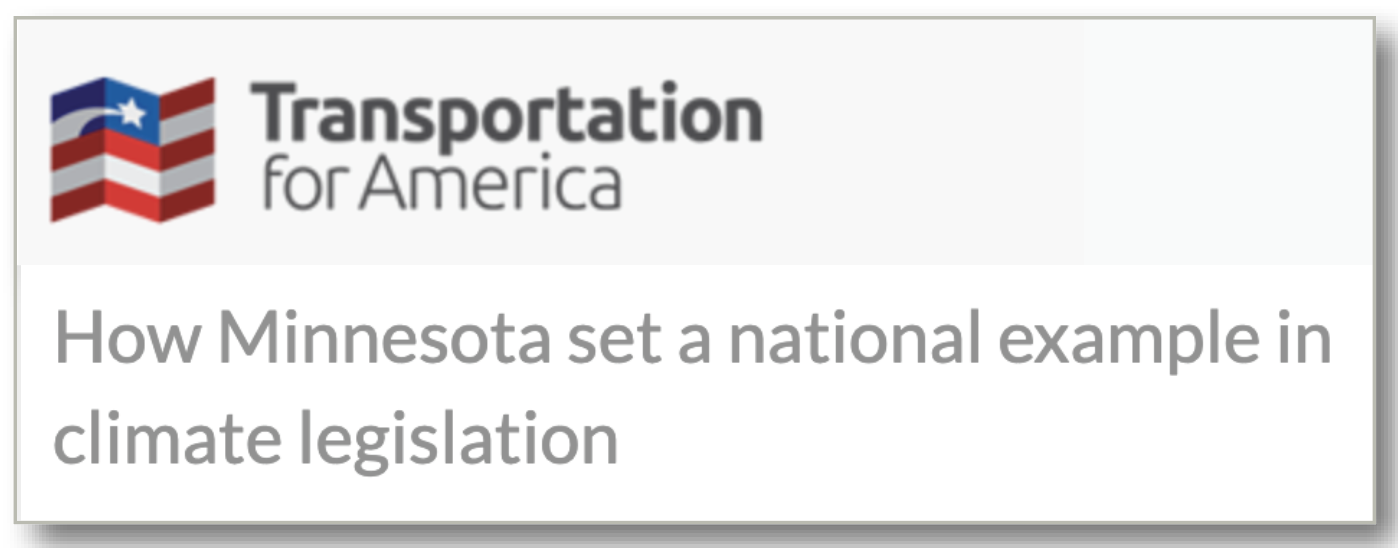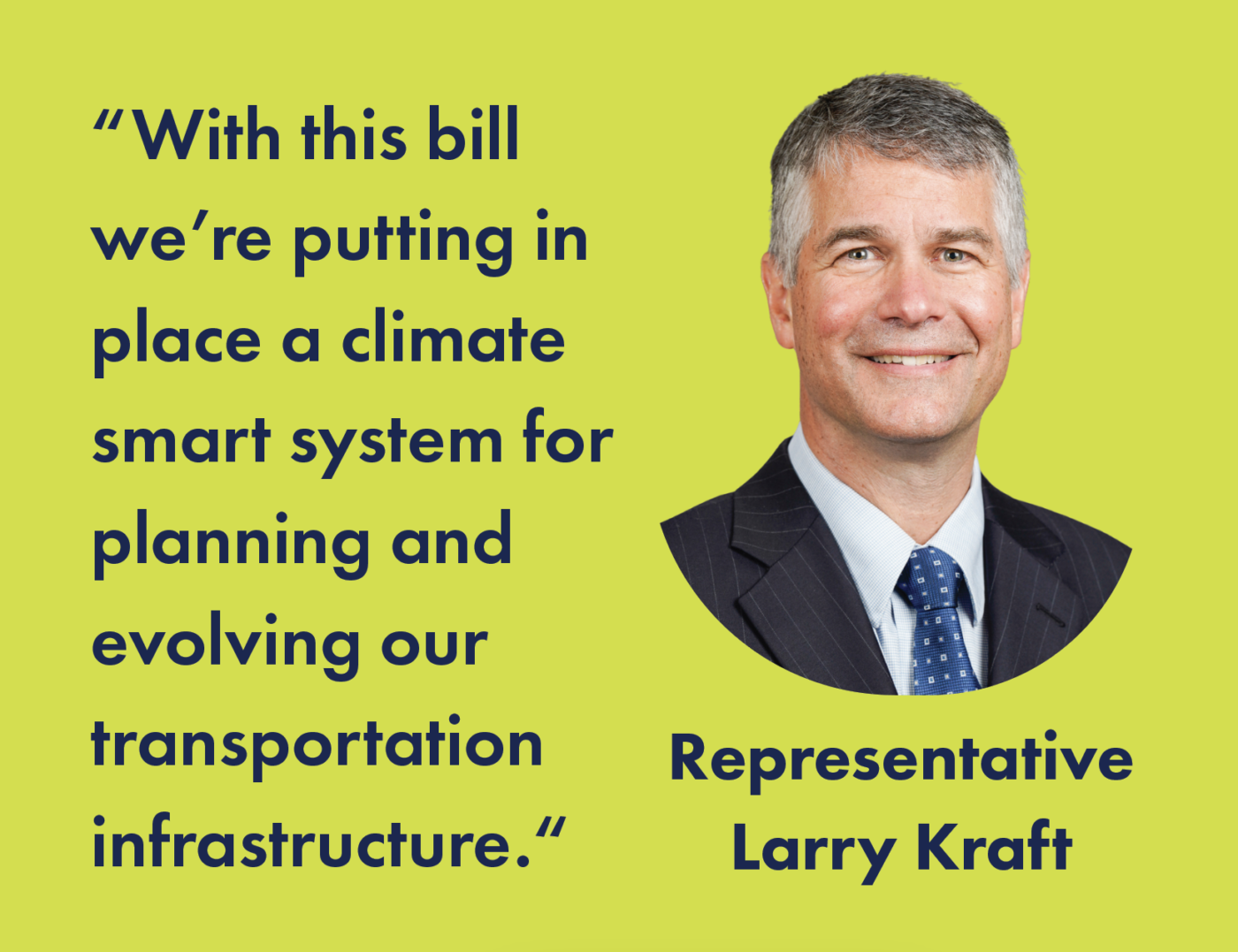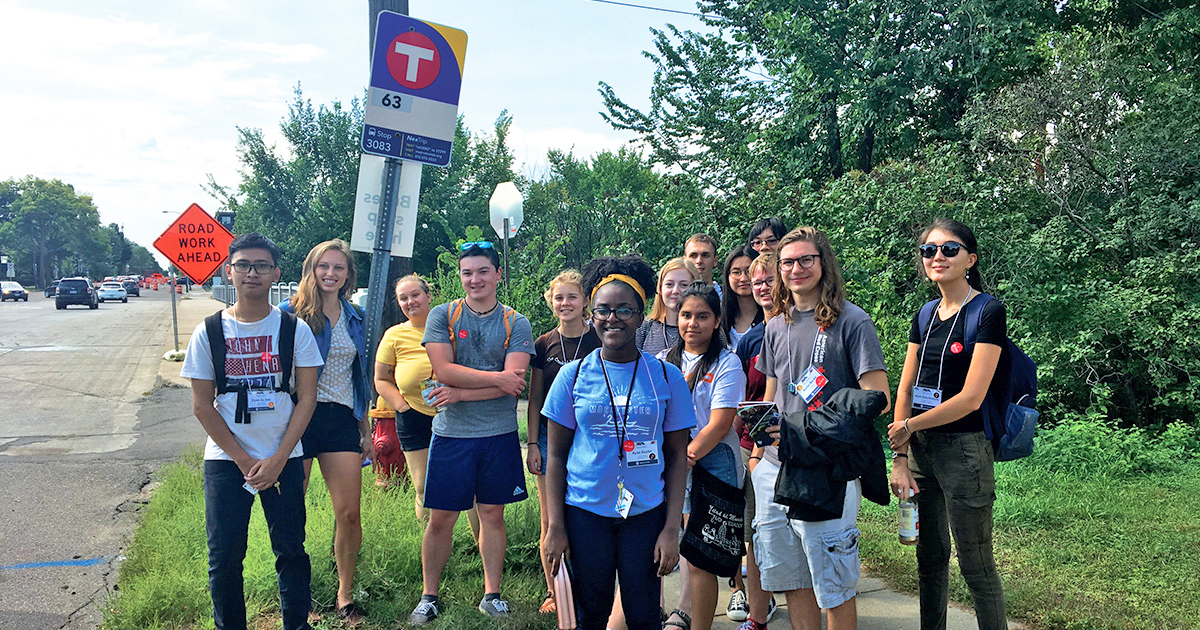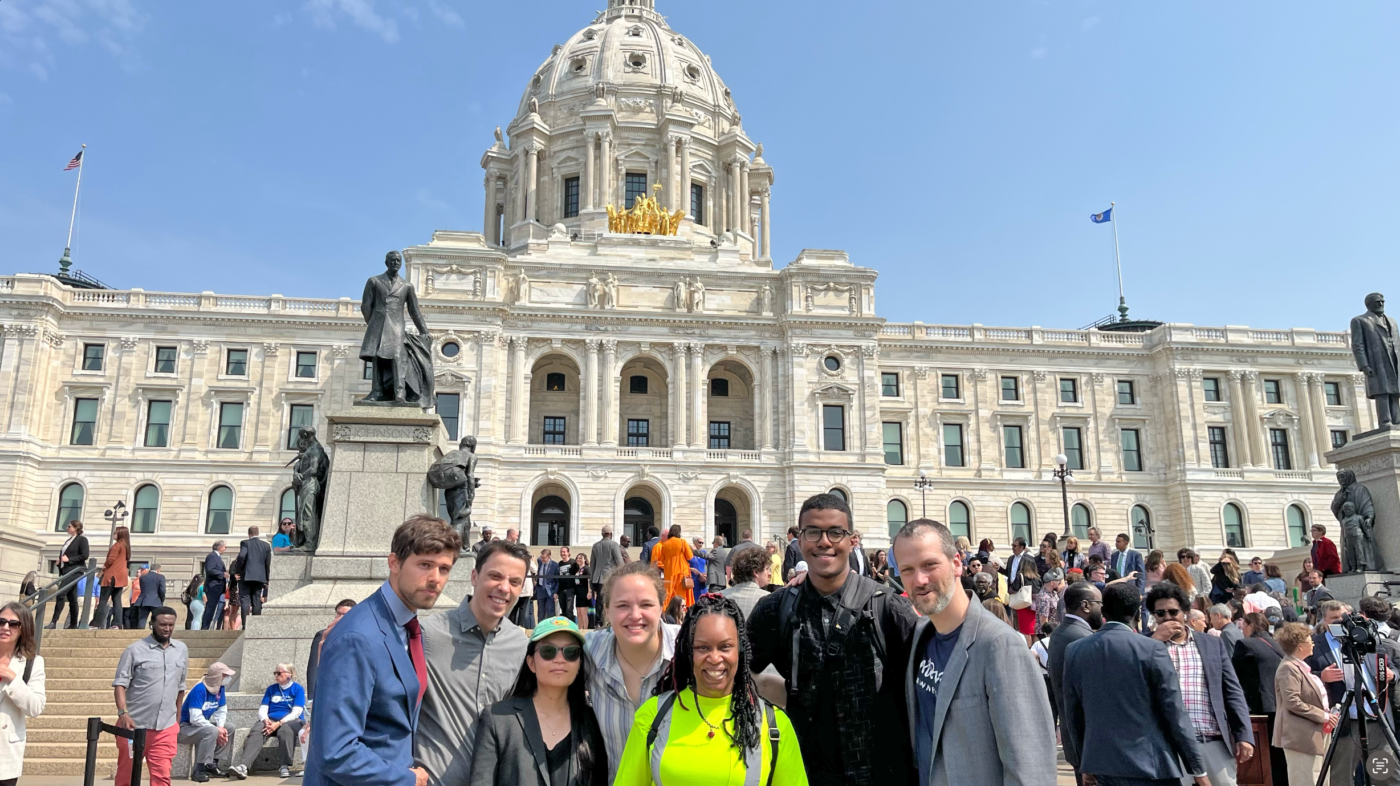Driving Change: Move Minnesota Policy Leadership Ushers in a New Era of Nation-Leading Climate Action in MN
Minnesotans can be proud to live in a state where lawmakers and advocates work together to advance groundbreaking policies to protect our climate and boost public transit.
Building on a decade of powerful advocacy and relationship-building at the State Capitol, Move Minnesota worked directly with elected transit champions last year to write a nation-leading policy that will shift the type of roads we build and the way our communities develop to secure a safer climate future. Minnesota legislators passed the law in 2023—adding to our landmark victories for transit and climate justice in Minnesota’s historic transportation bill.
This legislative session, we’ve been continuing our work with state lawmakers to ensure this innovative policy delivers the impact we need for our families and our future.
A Model for the Nation
Instead of endlessly expanding highways that divide our communities and pollute our air, more Minnesotans will be able to enjoy safe biking and walking connections or take fast, reliable public transit—thanks to the groundbreaking climate law secured by the advocacy of Move Minnesota and Move Minnesota Action in 2023.
For the very first time, this policy requires the state and region to turn Minnesota’s established climate goals into action on transportation projects and land use plans in ways that reduce driving and greenhouse gas pollution. While Colorado made headlines as the first state to adopt a similar measure, Move Minnesota leveraged connections with advocates and experts nationwide to carefully craft a measure that goes beyond that initial policy to create a new blueprint for states across the country.

Reducing Driving and Climate Pollution
Vehicle transportation is the largest source of climate pollution. But changing that isn’t simply about individual choices—it’s about shifting the systems that make us dependent on cars. For generations, highways and car-centric urban planning have fueled the climate crisis and created deep racial inequities in our communities. Thanks to years of advocacy, Move Minnesota Action played a central role in drafting, advancing, and securing the votes for the cutting-edge policy that will help set Minnesota on a new path.

The policy reduces climate pollution by:

Curbing highway expansion
The Minnesota Department of Transportation must now assess the climate impacts of new highway expansion projects and, if a project adds pollution, the agency must find ways to reduce or offset that pollution with transportation projects that give our communities more and better options to bike, walk, roll, and use public transit. These multimodal investments must benefit the communities experiencing harm, or historically disadvantaged communities, when possible. They must also ensure that new highway expansion projects support the state’s goal to reduce the number of miles Minnesotans travel in their cars.

Connecting urban planning to climate goals
The Metropolitan Council—the Twin Cities’ regional planning organization—must now adopt land use and development guidelines that require more than 180 cities to stop engineering our lives around cars, and make sure the way our communities grow meets our state climate protection and driving reduction goals.
Why It Matters to Minnesotans
“As someone deeply concerned about the climate crisis, I’ve made driving a last resort—the bus is a big part of my daily transportation.” Barbara N.
“I’m young enough that I’m going to have to live in the climate-change-fueled future that we are creating right now with car dependency.” Amethyst O.
“Transit is safer than driving, and it’s better for the air and the earth. More people taking transit means a better chance we can begin to reverse the climate crisis.” Karl S.

Economic Savings
Analysis from RMI found that meeting Minnesota’s goal to reduce driving would result in an average annual benefit of $3.4 billion in collective economic savings for Minnesota families—and meeting our state’s climate action goals could prevent $82 billion in damages to industries ranging from agriculture to real estate.

Public Support
Minnesotans want healthy, affordable, and sustainable ways to get around—and they support policies that redirect resources to make it happen. A recent statewide poll from Move Minnesota found that 66% of respondents support improving transportation options by “using funding from the state and federal government which would otherwise go to highway expansion.”

Climate Impact
As of 2024, Colorado is the only other state that has passed a similar policy. The state estimates the new planning process will help it avoid 1.5 million tons of greenhouse gas pollution by 2030—equivalent to taking 300,000 gas-powered cars off the road for a year.
From Passage to Implementation
In 2024, Move Minnesota, partners and legislative champions are working to make sure this law delivers the impact we need for our families and our future. In the months since the law’s passage, diverse experts and stakeholders, including Move Minnesota, carefully considered a process for assessing and mitigating the greenhouse gas (GHG) emissions and vehicle miles traveled (VMT) impacts of increasing capacity on the state’s trunk highway system. These insights and recommendations led to current efforts to:
- Ensure smooth and effective implementation of this critical climate measure
- Expand the law to all major highway projects, not just new highway expansion
- And provide the funding flexibility necessary for state and local governments to shift highway dollars to transit, biking, walking, and rolling projects to offset emissions

A New Legacy for Minnesotans
Climate change threatens the people and places we love, and our success in Minnesota is a strong reminder that solutions for a sustainable future are still readily available. By directly addressing climate pollution from transportation and land use, and pushing for policy change that will make it easier for people to walk, roll, bike, or bus, Move Minnesota and Move Minnesota Action helped our state set a new example for climate action nationwide. With this new law in place, instead of sprawling development and isolated neighborhoods, our region will have more housing and businesses in places that are easily accessible and close to one another. Instead of continuing to stoke the climate crisis, Minnesotans will be healthier and more connected, traveling together toward a future where everyone can thrive.
Thank you to our local and national partners, elected allies, and advocates for working alongside us to drive change that benefits our communities now and for the next generation!

